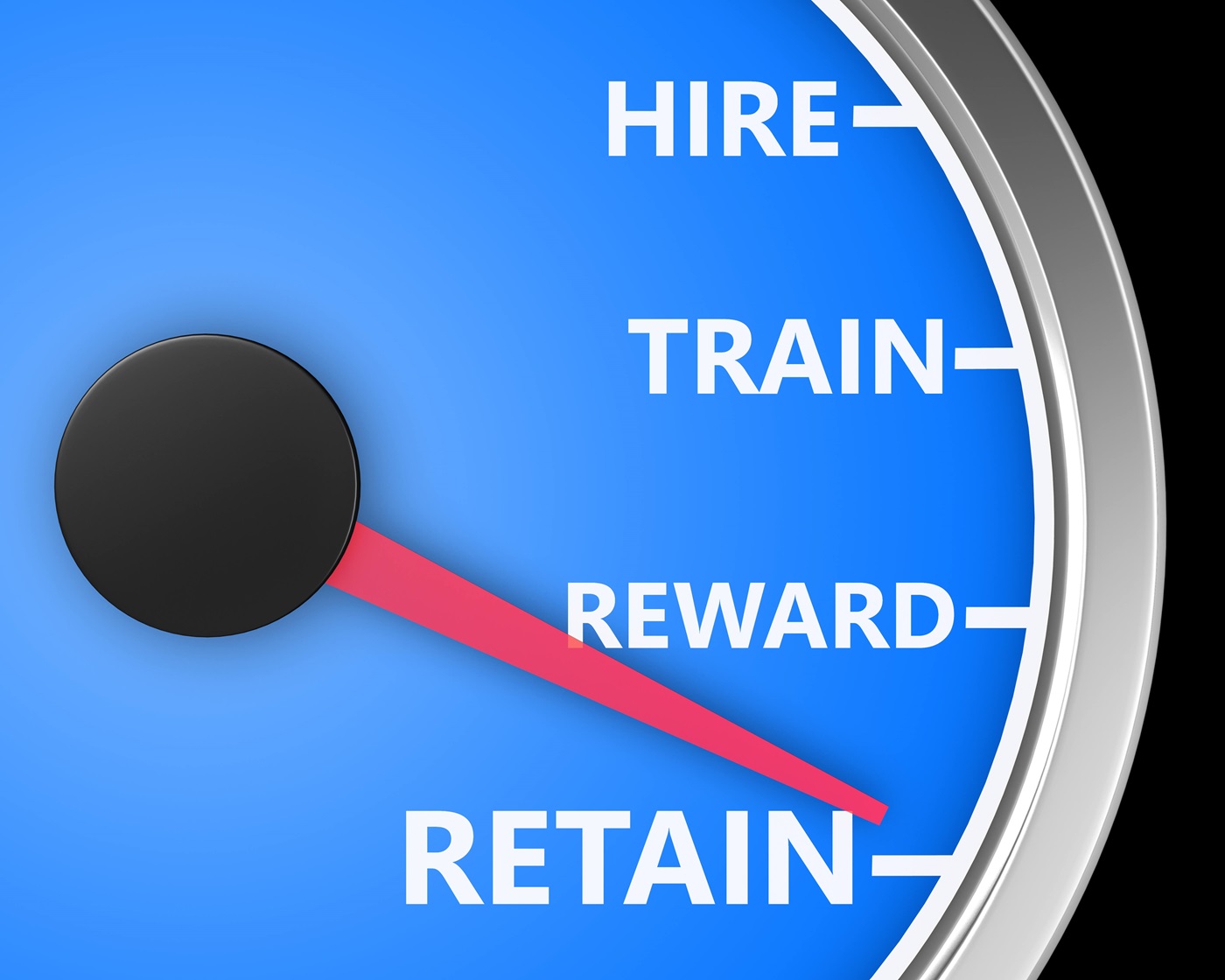Refine your search
Chris Potter
Do you have the best hiring process?
Over 30 years of experience have told us that:
1. Most companies do not have a reliable process and make up a new one every time they have a vacancy.
2. The best employers Recruit for attitude and Train for experience but most employers limit their search to only those ‘with the right CV’.
3. Simple recruitment processes work best. Using a recruiter means fewer touch points.
4. Too little attention is paid to creating a job description and candidate profile.
5. Employers need to understand their employee proposition and sell themselves at every stage.
6. Psychometric testing is no more reliable than good interview skills and intuition.
We work with some employers who are fantastic at this. They use processes that work, really understand what they have to offer, create compelling job descriptions and move quickly in order not to lose the interest of the best candidates. Our experience of the best and worst of this might help you to develop a best-in-class recruitment process:
Before you even start you should define your recruitment needs and goals.
Where will you need more/less people in the next 12 months? Who can you train now to meet those needs? Can you build a talent pool from people you have already interviewed, trade contacts or internal recommendations? Which recruiters work in your space?
1. Job description and candidate profile.
This document serves three purposes. Prospective candidates are going to read it so it needs to sell the idea of working for you. The essential/desirable skills required will be used to assess each candidate so they need to be accurate and realistic. You might use it in annual appraisals to assess skills in key areas so it needs to be up to date.
Every recruitment process should start with this in order to be clear on the desired outcome.
2. Candidate Attraction
There are only 3 ways to attract candidates – contact people you already know; advertise to attract new candidates, approach people who seem to have the right experience. If you have an abundance of time you might choose to do this yourself. If your time is precious you might appoint a recruiter to take care of the candidate attraction for you. Either way, a multi-channel approach is essential if you are going to maximise your chances of success. In every channel, make sure you showcase your compelling Employee Proposition.
3. Candidate Screening
Establish clear and consistent criteria for evaluating applications based on your job description. You should be able to screen against the essential hard skills that must be on the CV (eg. qualifications, location, product knowledge, market experience, previous job titles). The soft skills (personality, style etc) can be considered at the interview.
4. Assessment and Selection
Our article on how to stand out as an interview will help you to understand how to ask questions and score answers at an interview that will be consistent across all candidates and help to reveal a shortlist. Most employers use a video call at the first stage and invite candidates to the office for a second and final stage.
Never lose the personal touch. Be welcoming, sell the opportunity, offer refreshments, show them around – it will help you stand out to candidates who are interviewing elsewhere.
5. Candidate Experience
Great employers start every interview by confirming what stage you are at, what stages will follow and when the outcome will be communicated to the candidate. It is best practice to offer every candidate feedback on their interview performance and your recruiter can help with this.
6. Decision Making
Involve multiple stakeholders in the decision-making process to ensure diverse perspectives.
Trust your scoring system if you have used one and allow the line manager to make the final decision. Communicate that decision immediately with a phone call. The candidate will value the personal touch, have an opportunity to ask questions and the employer/recruiter will be better able to assess the likelihood of acceptance.
7. Preboarding / Onboarding
As an employer, you are vulnerable from the time you make a job offer to the moment your candidate starts. Counter-offers and competitive offers are frequent and you need to be proactive to ensure that you do not lose the candidate you want.
Some tips are:
• Invite the candidate to a ‘meet the team’ session as this creates emotional connections.
• Include them in (non-confidential) internal emails and newsletters. Send them training and product information.
• Call them every week to check in or to provide some information.
On the day they start, ensure you have a thorough induction process and that the right people are briefed and ready. Too many people start a new job and feel unwelcome on their first day because of a poor induction.
8. Review
As part of the induction, ask your new candidate for honest feedback on the recruitment process. Do the same with the stakeholders involved in the decision. Make improvements now and seek to continuously get better in this area.
Cavendish Maine can help you every aspect of this including recruitment advertisements, job descriptions, candidate profiles, interview questions and job offer letters. Please contact us for more information.
How to prepare for a job interview
So, you’ve been invited to interview for your dream job. It can be daunting, and there is often a lot of competition for the most exciting or sought-after roles – so how do you set yourself apart from other candidates.
Here, we offer our top six tips for interviews to make sure that your experience, knowledge and personality shine through:
1. Know what they are expecting and what you can offer.
Re-read and really interrogate the job description to make sure you know exactly what the company is looking for in their new hire. The more you can understand the interviewer’s expectations, the more you can make sure your answers meet or exceed them.
You also need to know your CV inside and out, as you never know what the interviewer might pick up on. Not only is it important to refresh your memory of how you presented yourself, you can also think about elements of your CV that fit with the job description, allowing you to offer the most relevant examples and experience during the interview.
2. Be prepared to give specific examples.
Being able to bring past experiences into the present is crucial in an interview. What are your most significant achievements? Will they illustrate key technical and soft skills the interviewer is looking for?
You don’t always have to have done the same thing previously, but you should be prepared to talk about something similar, the skills you used, and how you can apply that experience and skills to the task at hand.
It is not always easy to remember everything you have done previously, sometimes it can be helpful to prepare to talk about three or four very strong examples that show multiple skills and could be used as examples for a wide range of questions.
3. Style as well as substance
Your personality is just as importance as your technical abilities, and it is important that it shines through even if you are nervous. Simple things like asking the interviewer how they are or how their day is going can be a great opportunity to show more of yourself, as well as your soft skills.
First impressions matter, so try to think specifically about how you will appear in the first thirty seconds of the interview. Make sure you’re dressed appropriately and start with a smile. It is also important to think about what else may be seen during the interview, so choose a neat, undistracting background (if virtual) and a smart notepad if you have notes.
4. Remember your reasons.
Be prepared for commonly asked interview questions. It is almost certain that you will be asked why you want to leave your current role and why you are interested in the role and business you are interviewing for at some point during the process.
It is important to be respectful and positive about your current employer. Try to talk about a limitation of your current role and why you think working with the new company will address that issue. If you’re telling the interviewer why you want to work there, use specific points that are unique to their organisation.
5. Show your interest.
Interviews are a two-way street. You are being interviewed for the position, but you are also assessing if the business is somewhere you want to work. Asking questions, whether they are about the role, the business or even about the interviewer’s experience of working at the company, can help you work out if a role is right for you, and shows interest in the business that will set you ahead of other candidates.
6. Know your terms.
Be prepared to give details about your salary expectations and notice period, and to do so with confidence. It shows the employer that you have seriously thought about joining the organisation and you will be more comfortable in the interview if you have already thought about what you want. Instead of giving a specific salary, give a range that starts above your bottom line – it helps the employer measure their expectations against your own.
And remember, if you’ve made it to the interview stage, you are starting in a strong position. Those shortlisting applicants must have seen something in you and felt that you had what they were looking for, so you should be confident about your chances. Don’t worry, you’re going to be great.
How to follow up after an interview: email templates and advice to increase your chances of success.
Could a follow-up email help you secure your dream role? It definitely will not hurt! With the right timing and a few well-chosen words, you can keep your application front of mind and make a positive impression on your interviewer. Our recruitment experts give tips on how to send a follow-up email after an interview, including what to write and when to send.
Why an interview follow-up could work in your favour.
There are two kinds of follow up email you can use as part of the interview process:
- A post-interview thank you note
- A follow-up email to chase the status of an ongoing application
Follow-up emails (especially the thank you note) can serve three purposes in the hiring process.
- Firstly, they demonstrate proactivity and professionalism.
- Secondly, they allow you to reaffirm your passion and suitability for the role.
- Finally, a follow-up email could make you more memorable. However, timing is critical when sending follow-up emails. Both email types have different timelines; you'll need to stick to them if you want to strike while the iron’s hot!
How long after an interview should you follow up?
Where it’s always good practice to send a thank you note after your job interview, we only recommend sending an interview chaser if the deadline for hearing back has come and gone.
When to send your post-interview thank you note.
The best time to send your post-interview thank you note is 24 hours after your interview or the next business day (assuming you interviewed on a Friday). Anything sooner could look over-eager, and anything later risks looking like an afterthought. If you're worried about forgetting, you can draft the email directly after your interview and schedule it to send at your chosen time.
Read more: How to prepare for a job interview
When to send your interview chaser email.
The best way to know when to send an interview chaser is to ask about the hiring timeline during your interview. We recommend adding it as the last item on your list of questions for your potential employer. The date they give will provide a solid timeline for when it's appropriate to reach out. We recommend letting the deadline pass before sending your follow-up — any time between two days and one week after the expected deadline passes. You can set a reminder on your phone or add a note to your calendar, so you don't forget; this is especially helpful if you're interviewing with several companies. Remember to note the interview date, role, and company name in your reminder!
How to write a follow-up email after an interview.
A good follow-up email should be short and tailored to the recipient. Send your email directly to the hiring manager (or the person who interviewed you) and address them by name. Try to include specific details from your interview, including the date and the role, plus a reference to one or two of the items you discussed. We also recommend finishing the email with a positive statement that invites a reply.
Post-interview thank you note example:
Dear [hiring manager's name],
Thanks for inviting me to interview with you yesterday for the [position] role.
I enjoyed hearing about [company name] and [specific detail about an ongoing project or initiative]. I'm excited about possibly contributing my experience in [areas of expertise] to help achieve those goals.
Our conversation has reaffirmed my belief that I can thrive in this role. I hope we'll have the chance to work together, and I look forward to hearing back from you soon.
Kind regards,
[Your Name]
Interview chaser example:
Dear [hiring manager's name],
I wanted to thank you again for taking the time to interview me on [date] for the [position] role. I was hoping to get an update on the status of my application.
Getting the opportunity to learn more about the projects the team is working on—especially the upcoming launch of the new customer portal—left me feeling even more excited about potentially joining your team.
Please let me know if I can provide additional information to help with your hiring decision.
I'm very interested in the position and look forward to hearing about the next steps. Thanks again for your time and consideration.
Best regards,
[Your name]
Sending follow-up emails may sometimes feel like extra admin on top of the stress of interviewing for a new role, but they can make a difference where your professional image is concerned. Taking the time to write and send emails like these can help you feel confident you’ve given 100 per cent to the process — and that’s all anyone could ask!
Visit www.cavendishmaine.com for more tips CV writing, job interview preparation, including How to succeed at your performance review, The art of getting headhunted, Negotiating the salary you deserve and more.
Are you ready to find your next career opportunity? Contact us to discuss further.
Last November we published an Insight that covered conducting an annual performance review and we had good feedback on the content as well as a request for a document that Sales Manager’s could use to structure, assess and report on an annual performance review.
We are pleased to offer it as a template. You might need to adapt it to meet your specific needs but, as you will see, it aims to define the purpose of the role, summarise the skills required to achieve it and allow the manager and team member to provide scores for each competency.
The content should be consistent with the job description for the role but it might evolve depending on market conditions and the needs of specific sales territories.
If you need any assistance with preparing for, conducting and following up your performance appraisals please let us know, we are happy to help. Remember that your team value the time that you invest in their annual performance review and they have the potential to lock-in or disengage team members so it is important to get it right!
You might be interested in our articles about Interviewing techniques and improving your appeal as an employer. Please Contact Us if we can offer any support or advice on any of these topics.
Steve Cox
Karen, thank you for all your help. It's really appreciated, and it's been so refreshing to encounter someone who's been so dedicated to helping achieve both our desired end results from the recruitment process.
I have come across recruiters who are great at making grand claims about what they're going to do for you, but then when it comes to that all-important final result, just leave things to chance.
Your approach with me has been thorough from the start, so once again thank you for your help and for backing me with some helpful advice.
Want to maximise your staff retention in 2024?
Start by asking yourself these questions...
- How many people in your team would tell their friends and family they have a good job in a good company?
- Do they feel listened to?
- Do they have the right training, support, or environment to do their best?
- Do they care about what they are doing?
Business leaders who hesitate with these questions are going to have a problem retaining people. Here are the top 5 candidate considerations across all the markets in which we recruit:
1. Flexible Work Arrangements
Offering flexible work options, such as remote work, flexible hours, or compressed workweeks, can contribute to employee satisfaction and work-life balance. In 2024, with the continued evolution of technology, remote work may have become even more prevalent, so it's essential to provide employees with the flexibility they need.
Consistent flexing throughout a persons career, allowing for all of life’s changes and challenges can deliver the highest levels of loyalty.
2. Career Development Opportunities
Invest in employee training and development programs to help them acquire new skills and advance their careers within the organisation. Providing a clear path for growth and advancement can significantly impact employee satisfaction and loyalty.
Providing support outside of work, acknowledges the employee as a complete individual, and can further increase satisfaction.
3. Competitive Compensation and Benefits
Ensure that your organisation's compensation packages are competitive within your industry. Regularly review and adjust salaries, offer attractive benefits, and consider additional perks that contribute to overall employee well being, examples could include health and well being benefits or volunteer days. Stay informed about industry standards and trends in compensation.
4. Recognition and Rewards Programs
Implement a robust employee recognition program to acknowledge and reward employees for their hard work and achievements. Recognition can take various forms, including verbal praise, awards, bonuses, or promotions. Publicly acknowledging employees for their contributions fosters a positive and motivating work environment.
5. Strong Organisational Culture
Cultivate a positive and inclusive organisational culture that aligns with the values and goals of your employees. Promote open communication, collaboration, and a sense of belonging. Regularly assess and refine your company culture to ensure it remains relevant and supportive.
In addition to these strategies, it's essential to regularly gather feedback from employees through surveys, one-on-one meetings, or other channels. This will help you understand their evolving needs and concerns, allowing you to tailor retention strategies accordingly.
Remember, the specific needs and preferences of your workforce may vary, so it's important to stay adaptable and responsive to changes in the work environment and employee expectations.

Three quick actions to improve things this week...
One, make sure your day to day working model matches your brand, your people, and your culture.
Two, protect people’s time and protect their ability to focus.
Three, how do you make sure people feel seen and heard?
Fifteen minutes a week, one to one, where they do most of the talking, is a good place to start.
For more strategies on staff retention, growth consultancy, or team building, please reach out to discuss further.
The annual performance review can be a pressured occasion for both sides, particularly if it coincides with a salary review. Expectations are high and managers need to prepare well in order to achieve their intended outcome. Be professional and ensure you are respected for the way you approached it.
Here are some key tips for conducting effective annual reviews for line managers. We give similar advice to employees here How to succeed in your Performance Review:
1. Prepare in Advance:
Set the date, time and venue well in advance. Always conduct the meeting face to face if possible. Tell your team what they need to prepare. Review their goals and achievements, take feedback from colleagues and customers. Prepare examples that explain your perspective. Anticipate their questions and, if you are going to have a difficult conversation, be ready to face it head on. Use the same structure for all reviews and create a template letter for written follow up. Remind yourself to really listen.
2. Set the tone:
Begin the review with a positive and constructive tone. Thank the employee for their preparation. Acknowledge their contributions and express appreciation for their hard work. Confirm how much time you have for this meeting and what actions will follow.
3. Discuss broad achievements:
What has gone well this year? Highlight their achievements and successes over the past year with examples. Recognise their contribution to the team and the organisation. This reinforces what gets noticed and rewarded.
4. Encourage Self-Assessment:
Allow the employee to share their own perspective on their performance. This self-assessment can provide valuable insights into their perception of their strengths and areas for growth. It also encourages self-awareness and accountability.
5. Talk about the performance gaps:
Address areas where improvement is needed, but frame feedback constructively. Focus on specific goals or behaviours and follow up with suggestions for improvement.
6. Support them:
Identify areas for professional development, performance improvement and personal growth. Discuss training opportunities, workshops, or mentorship programs that can help the employee enhance their skills and contribute more effectively to the organisation.
7. Encourage Two-Way Communication:
Make this a dialogue, not a monologue. Encourage the employee to share their thoughts, concerns, career aspirations and proposed improvements. Actively listen to their perspective and consider their input in the discussion. Have integrity! Be honest about whether your organisation can meet their career or earning expectations, they will respect you for it.
8. Document the Discussion:
Keep notes during the review, documenting key points, agreed-upon goals, and action items. This documentation serves as a reference for both the manager and the employee throughout the year. Do it within 48 hours of the meeting.
9. Follow-Up and Support:
Schedule quarterly follow-up meetings throughout the year to check progress, provide support, and make any necessary adjustments to goals. This ongoing feedback ensures that employees feel supported and have the resources they need to succeed.
The annual review process is not just about evaluating performance. Many employees see it as sacred time with their boss, and it is where strong bonds of trust and respect can be built. We know from the feedback that we get from job seekers that poorly managed performance reviews and a lack of subsequent follow up leads to disengagement and, ultimately, an avoidable resignation.
Job offer rejected?!
How to ask a candidate why they declined an offer…
Skilled talent is getting harder and harder to come by. According to Google research, 89% of businesses are experiencing a skills shortage and more than half (54%) feel it’s harder to find skilled talent now than three years ago. With so much at stake, it’s no wonder businesses are choosing to investigate why candidates decline job offers at their organisation.
We reveal the 6 most common reasons candidates reject an offer, what businesses are doing to stand out in the competitive market, and how to ask a candidate why they declined an offer.
Reasons to decline a job offer
1. No sense of ethics or values
Today’s candidates are attracted to employers with solid values, especially regarding diversity, equity, and inclusion (DEI) and environment, social and governance (ESG) . In fact, over half (53%) of younger workers will reject an employer they perceive as unethical, and 22% of 18 to 34-year-olds say they hold corporate values above salary when looking for an employer.
Related: What’s your company’s EVP? (Employee Value Proposition)
2. Lack of flexibility
Flexibility is essential to professionals, especially in the wake of the pandemic. As a result, many of them expect a certain degree of flexibility regarding how they work — whether that’s a choice of in-office days or the ability to adapt their working day to suit their lives
Research for the 2023 Salary Guide showed that employers were consistently failing where work-life balance was concerned, and potential employees will be on the lookout for this. However, almost a third (31%) of employers recognised that flexibility was a crucial sticking point for candidates. As a result, they use it alongside competitive salaries to attract talent.
3. Remuneration negotiation
Benefit and salary negotiations can draw out your recruitment process, so ensuring your initial offering is attractive enough before you begin is essential. Excessive haggling and negotiation can leave a bitter taste in a candidate’s mouth and makes your offer look uncompetitive compared to the others they’re getting.
4. Candidates didn’t get a sense of company culture
Professionals aren’t just accepting a role; they’re also opting to join a company culture. Positive relationships with their teammates make them 2.7 times more likely to be happy in a job.
By not sharing the company mission or describing the personality traits of an ‘ideal teammate’, you’re missing the opportunity to paint a picture of the unique dynamic that sets you apart from competing businesses.
5. No opportunity for progression
Because career goals are never static, one of the most attractive aspects of a new role is the growth prospects on offer. According to research by Gallup, the highest-quality candidates will use interviews to assess the level of opportunity on offer and base an acceptance on this.
Failure to ask interview questions designed to reveal your candidate’s favoured career path and not explaining how your business can offer progression along the same trajectory is an oversight that can cost you a first-choice candidate. If opportunities to progress are not clear from application or interview, it stands a good enough reason for candidates to decline a job offer.
Related: The Top 10 Traits of People Who Advance in Their Careers
6. The work doesn’t offer a valuable experience
When asked what drives happiness at work, the top-ranking responses from employees were gaining a sense of accomplishment and undertaking interesting, meaningful work. Daily tasks which are too complex or too easy will fail to satisfy an employee and may cause them to drop off before the end of probation (if they accept the job at all).
It’s helpful to advertise the aspects of the job which offer the opportunity to lead or participate in key projects, the ability for professionals to set targets and goals, and to take ownership of their own tasks.
How to ask a candidate why they declined an offer
1. Put your personal emotions on the back burner
It can be hard not to react strongly after your job offer has been declined, but it’s imperative you keep a cool head before responding. This might mean taking a beat before responding or leaving the email for an hour or two to help create distance. Clapping back is a sure-fire way to push that candidate further out of reach and garner a bad reputation at the same time.
2. Ask for more information
Politely ask whether the candidate would be happy to share why they’ve rejected the job offer. Let them know they’re more than entitled to walk away without giving feedback but that their answers could help you improve your hiring process. Let them know that you’re open to negotiating and that you’re more than willing to make the offer more attractive.
3. Identify potential to negotiate
If your candidate is happy to share more information with you, look for the potential to negotiate. In some instances, you can turn the rejection around with simple changes to your offer. Ask the candidate if they’d reconsider should you come back with a preferable deal. If they decline, respect their answer, and wish them luck for the future.
Hiring new staff amid a talent crunch is incredibly difficult, so it’s worth enlisting expert help.
Get in touch with our recruitment experts today for access to the best talent.
For more advice on hiring best practices, visit the Cavendish Maine Insights page now. https://www.cavendishmaine.com/news/news
Social Media, whether you are an advocate of it or not, it’s hard to ignore the fact that so many people are on it, use it and market through it. If you are looking to reach a wide audience then it seems that investing in social media is the way forward. These figures released by Moneyzine really highlight just how prolific social media consumption is so if you are looking for a way to boost brand awareness and sales, then it is worth checking out.
As of January 2022, there were 57.6 million social media users in the UK
With YoY growth of 4.6 million or 8.7% shows that social media has never been as popular as it is today. 86% of internet users in the United Kingdom use social media platforms as well, which is above the average percentage in Western Europe.
29% of people in the UK use social media to research brand awareness
I am sure we have all checked LinkedIn or maybe Facebook or Instagram to check out a brand and its products and also its people, alongside the website it is a useful tool to see latest news and product information.
 58% of UK and Irish business use social media daily Using data gathered from social media has proven to be so efficient that most businesses collect new info daily. 31% of organisations do it weekly, 10% monthly, while fewer than 1% of businesses don’t do it at all. With over half the businesses using social media daily, if you are not can you afford not to be?
58% of UK and Irish business use social media daily Using data gathered from social media has proven to be so efficient that most businesses collect new info daily. 31% of organisations do it weekly, 10% monthly, while fewer than 1% of businesses don’t do it at all. With over half the businesses using social media daily, if you are not can you afford not to be?
The average UK social media user spends 1 hour and 48 minutes daily on social media
This is one of the social media addiction statistics UK people can’t be too proud of but it’s still below the global average of 2 hours and 27 minutes. But with this much time spent on the platforms it is a great opportunity to highlight your brand.
35% of UK people chose a competitor when a brand takes too long to respond on social media
Furthermore, 35% of the interviewed consumers also claim they’ll not complete a purchase if they don’t receive a reply to their social media query in time. 18% of them will give a negative review on social media, while 33% will complain about it to their friends and family. If there’s one thing you shouldn’t miss out on as a small business in the UK, that’s investing time and effort into building customer loyalty.
Social Media ads account for 30.3% of the total digital advertising spend in the UK
22.5% of people discover brands through social ads and 15.9% of them do the same through social media comments, last year brands invested around $8.25 billion on social media ads!
For more interesting facts and figures around social media consumption and how brands harness it, check out the full article here Compelling UK Social Media Statistics for 2023 (moneyzine.com)
How to be the best version of yourself at work
Learning how to be the best version of yourself at work is an ongoing journey that can be incredibly rewarding, both professionally and personally.
Here are some tips on how to be yourself at work, why personal growth is beneficial for your career and steps that can help you get there.
Reasons to invest in personal growth at work
You may want to be the best version of yourself for personal reasons but investing in personal growth in the workplace can also have a positive impact on your career.

Increased happiness and engagement at work
In order to be your best self in the workplace, you’ll need to be honest with yourself about your goals, motivations and career aspirations. It’s this honesty which will ensure you continue to work happy and stay engaged.
Taking the time to think about what you want to do and having the confidence to ask for it is really important in helping you achieve full engagement and happiness at work.
Better relationships
Heightened interpersonal skills and emotional intelligence are essential for good relationships in both your professional and personal life. The fastest way to improve these skills is to undertake personal growth and development at work. Joseph C. Rode (Professor of Management at Miami University of Ohio) recently told Business News Daily:
“While emotional intelligence includes the ability to use emotions to increase motivation and focus, it also includes the ability to detach from very powerful short-term emotions when needed to better focus on the tasks at hand.”
You’re better placed to overcome challenges
When you take the time to work on your flaws and shortcomings, you may find that you’re more self-aware and stable, making you better prepared to overcome any challenges or obstacles that an ever-changing workplace may throw your way.
6 steps to help you be your best self at work
1. Create a clear career plan and try to move toward it
Your personal growth in the workplace begins with deciding where you’d like your career to take you and which tasks you enjoy most. When you have a defined career path and an idea of what makes you happiest, you’ll find it easier to isolate what you need to work on to help get there.
“As you continue in your professional life it’s important to reassess your career and your career goals the entire time, ask yourself these questions:
- what do I want,
- when do I want it
- how am I going to achieve it
- what resources will I need?”
2. Be your authentic self
It can be difficult to decide how to be yourself at work, especially when you want to appear professional or want to please everyone.
“It’s really important that the way you feel inside and your values and beliefs and who you are internally match the external. If the two are incongruent, that’s when people’s antennas tend to go up, and they feel there’s something about you that isn’t authentic.”
To be your best self in the workplace, allow some of your personality to come through at work. Your relationships are likely to improve, and you’ll be perceived as more consistent, authentic, and trustworthy.
3. Become a positive thinker
Negative self-talk and ‘glass half empty’ thoughts are unlikely to get you closer to your goal to be the best version of yourself. Learn to identify negative thoughts about your own abilities or those of your colleagues and, instead, look for something positive to focus on.
How can the problem be turned into an opportunity? How can your colleagues or stakeholders help you solve the problem?
4. Consider the company you keep
Have you noticed that certain members of the team are always negative? Perhaps the people you work with enjoy gossiping? The company you keep at work will change the perception your superiors and colleagues have of you, and can also have a negative effect on your own personal growth.
You may be able to influence your personal growth in the workplace by intentionally surrounding yourself with people who reflect the same qualities you’d like to emulate.
5. Evolve your soft skills
Qualifications and hard skills are important for career progression, but learning to develop your soft skills can lead to real personal growth and development at work.
Take time to work on elevating your emotional intelligence: respond rather than reacting in the moment, listen more and exercise your empathy. According to our research, some of the most in-demand soft skills for career development in 2023 are teamwork, communication, work ethic and motivation.
6. Turn setbacks into motivation
They say ‘smooth seas don’t make good sailors’ and the same is true of personal growth and development at work. Each setback or challenge you face should be seen as a new opportunity to use what you’ve learned and to learn something new.
If you miss out on a promotion or project, think about what you could improve on, what you might have done differently and how you can keep striving to be your best self. Every setback is an opportunity to grow!
Be the best version of yourself going forward

It’s unlikely that you’ll figure out how to be yourself at work or how to be your best self in a day or two. It’s an ongoing process that you’ll need to invest continuous time and effort in, but the rewards will be well worth it.
For more information on career development, please head over to https://www.cavendishmaine.com/news-insights/









